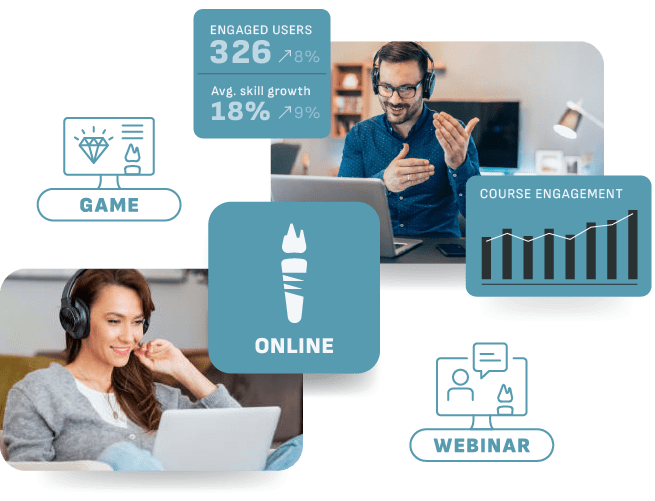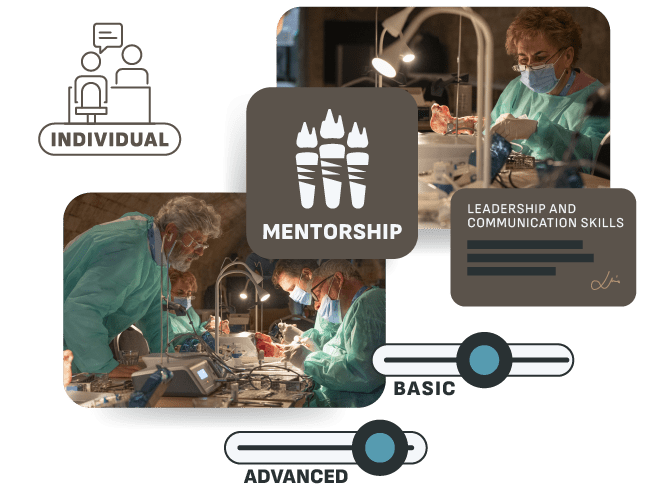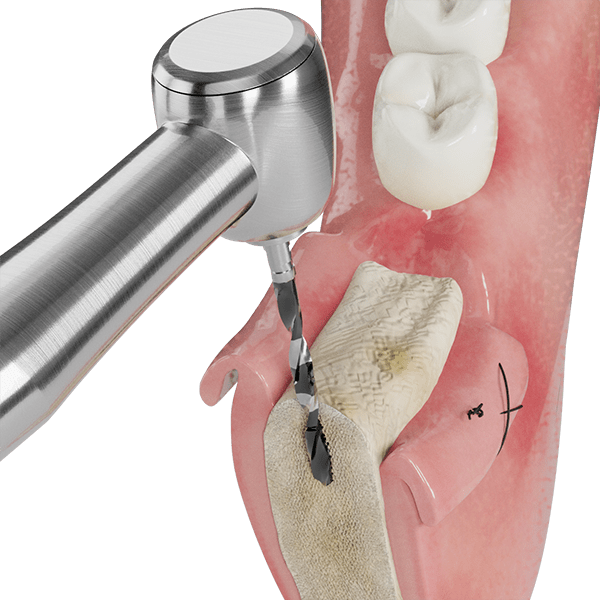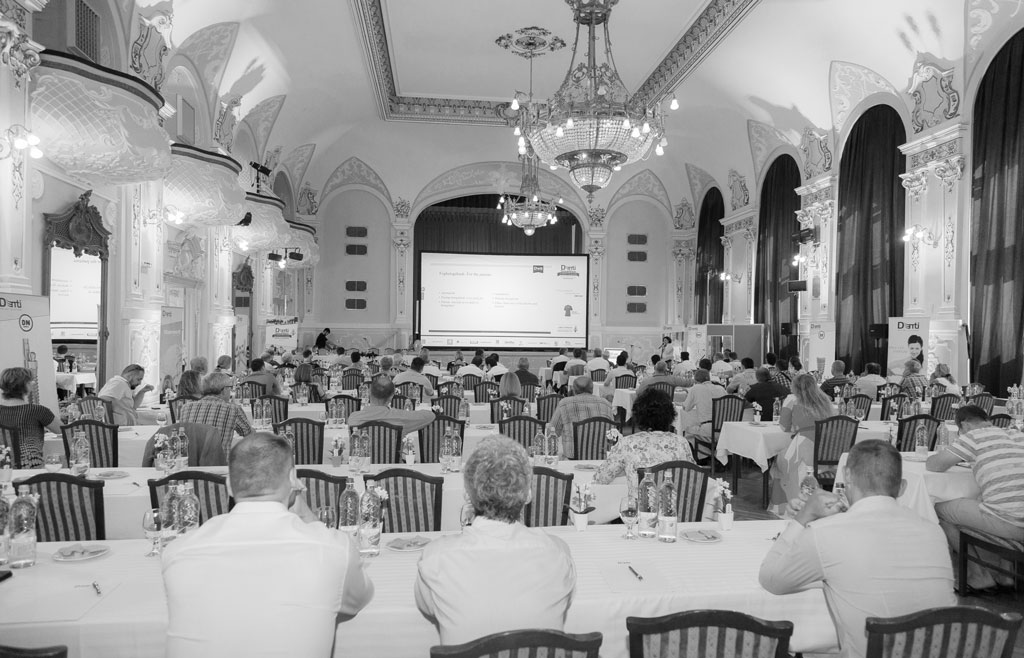The primary aim of the institution is to provide dentists with fundamental and easily applicable knowledge in the field of dental implantology.

This is geared towards the conveyance of basic knowledge. The program helps make learning more engaging, thus easier to digest.
Building a bridge between theory and practice is a critical step in education. Hands-on courses offer students the opportunity to apply theoretical knowledge and gain direct experience, enhancing their confidence and competency.


This level aptly completes the program. Mentors can not only pass on their knowledge to the next generation but also develop additional leadership and communication skills that will be broadly useful to them.
The well-designed, three-module educational program allows students to progressively and logically build their knowledge and skills. Starting from the basics, through practical training, to mentorship, each module focuses on different abilities and knowledge while providing a comprehensive overview of the entire field of implantology.

Join us for a day as we unravel the fundamental knowledge of dental implantology before you. This intensive workshop is specifically designed for those seeking an in-depth understanding of the basics of this dynamically evolving field.
The theoretical foundations of ethical practice and patient-centered approaches will be presented by experienced and recognized professionals. During the course, you will not only gain theoretical knowledge but also have the opportunity to directly try out techniques in practical training that enable successful implant placement.
We present our Advanced Dental Implantology Intensive Course, a multi-day, complex, and multidisciplinary program specifically designed for those seeking to acquire deeper knowledge and skills in the field of dental implantology.
This course aims for professional precision, adherence to ethical standards, and the application of professional innovations, integrating both online and practical training elements in a structured, modular curriculum. Participants will have the opportunity to thoroughly understand the fundamental principles of dental implantology and apply the latest in digital design and surgical techniques.
Within the course framework, students will gain insight into specialized surgical interventions. Additionally, we place significant emphasis on prosthetic considerations, detailing how restorations can be planned and fabricated with functional and aesthetic requirements in mind. Modules related to patient management and ethics highlight the importance of communication strategies and managing patient expectations for successful practice. The practical component of the program enables participants to directly apply theoretical knowledge on model jaws, facilitating practical understanding of implant placement and related procedures.
Online learning modules complement in-person teaching, with digital lectures, case studies, and interactive forums to deepen participants’ knowledge and encourage professional discourse. This comprehensive training structure ensures that participants are prepared to meet the challenges of modern dental implantology, advancing their practice towards scientific rigor and clinical excellence.
Participants can master the suture techniques used in dentoalveolar and periodontal surgery through hands-on practice on sponges and porcine mandibles.
The necessity of uniting separated or dissected tissues was recognized in ancient times. However, the manual instruments and tools for wound closure that we use today have only appeared on the market a generation ago. These are continuously being developed to meet specific needs. Nevertheless, we must not forget that their use is based on fundamentals and techniques without the knowledge and practice of which, the results of surgical interventions can be quite unpredictable. This is particularly demanded in our era with the emphasis on minimal invasiveness and the clarification of evidence. It is also necessary in the mouth and face area, which enjoys privileges regarding wound healing due to good blood supply and the osseous or periosteal wound base, potentially sparing the operator from many complications.
The tension-free, precise union of well-vascularized tissues, and the prevention of infection, are mantras memorized by medical students and recalled during examinations, but they gain real significance in the clinic. The outcome, or lack thereof, becomes (sometimes belatedly) the feedback for the learned material.
Theme: Restoration of extensive total edentulism on a resective basis through total implantation. Creation of a fixed dental prosthesis anchored on 4/6 implants.
The all-on-X procedures have gained immense popularity in recent years. Their popularity owes much to their numerous “patient-attracting” features. Naturally, practices also benefit from this popular “product” and a surge of new patients with the introduction of the procedure. Who wouldn’t want a beautiful and fixed smile immediately, even in cases of unfavorable bone supply? However, we must not forget that we are discussing a solution that is pushed to its limits, where knowing the boundaries of these limits is crucial to avoid failure. The course covers critical static rules, surgical planning with manual and navigated procedures. We practice placing implants on models and learn about the design and dental technological requirements for sustainable bridge prostheses.
Discover the world of guided surgery with our interactive basic training course, where we unveil the secrets and importance of navigated surgical techniques.
In this course, you will learn how planning and foresight can become an indispensable part of your daily clinical routine, how to elevate your practice’s digital development to a new level, and how to make patient communication modern and standardized to meet the demands of the 21st century.
The integration of dental implantology procedures with guided techniques transforms clinical practice into a multidisciplinary teamwork effort, where expertise from various fields is realized through synergistic relationships.
This course illustrates how flawless dental restorations can be achieved through a prosthetically driven, backward planning process that primarily serves the patient’s interests. A theoretical lecture focused on guide technologies deepens participants’ understanding of these innovative processes, providing insights into the functionality of cutting-edge planning software and its application steps. An overview of intraoral scanner technologies further expands participants’ knowledge, enabling them to improve their clinical practice with the latest digital diagnostic tools.
The foundation of high-quality dental restorations that meet both functional and aesthetic standards begins with planning and precise impression taking.
Our experienced speaker will introduce the best techniques for impression taking, share their experiences with digital impression taking, and compare the two methods. Participants will have the opportunity to try these techniques for themselves during a practical session in our training facility.
Dive into the fascinating world of sinus lift surgical techniques with our unique course, where we not only introduce the most modern procedures but also thoroughly review potential complications and their management strategies.
This theme is specially designed for those seeking deeper knowledge and practical skills in sinus elevation surgeries, including professionals aiming to expand their competencies in handling more complex cases.
Throughout the course, we will detail the various techniques of sinus lifting, from the basics to more advanced and innovative methods. We’ll explore the indications for sinus elevation, the importance of proper patient selection, and demonstrate how to minimize risks associated with surgical interventions. Special attention is given to the prevention, identification, and management of complications, including best practices for post-operative care.
Through interactive practical modules, participants will have the opportunity to directly apply the knowledge gained in theory, practicing critical steps of sinus lift surgeries on realistic models. This hands-on approach not only facilitates skill development but also ensures that participants can confidently manage the challenges and complications associated with sinus lift procedures in their future practice.
In collaboration with the Semmelweis University’s Institute of Anatomy, Histology, and Embryology, our CADAVER two-day course offers participants an in-depth look into the theoretical aspects of anatomy on the first day, setting a solid foundation for the hands-on training sessions to follow
During these lectures, we will also delve into the theoretical underpinnings necessary for the practical exercises. The second day is dedicated entirely to practical training, where participants will have the opportunity to apply their anatomical knowledge on human specimens. Small groups of two are assisted by experienced instructors who are ready to support both their practical and theoretical inquiries, ensuring a high-quality and efficient learning experience.
Online course
The challenge of reprocessing medical devices. Getting it right! Sterilization succeeds only with appropriate pre-disinfection and cleaning.
Both steps are just as important (even more…) as sterilization! our lecturer: Christian Stempf has worked extensively within the European dental industry. He has been involved in infection prevention for 30 years, with focus on reprocessing reusable medical devices, in particular sterilization and design of reprocessing areas. He has gathered valuable practical knowledge and experience through his daily activities and contacts with healthcare professionals and experts in the field of infection prevention throughout the world. He is a supporting observer of the European Normalization Committee mostly involved in steam sterilizers and thermal washer-disinfectors standards. He co-developed a high-end B-type sterilizer.
Christian offers vendor independent lectures for healthcare professionals as well as comprehensive courses for dental assistants worldwide.
Hands-on training for dental students (implant insertion & sinus lateral window prep & bone grafting.
The AIM program offers a unique training opportunity for university students, available as either a mandatory or elective course.
This hands-on training allows participants to gain practical experience in placing implants into artificial jaws, modeling hard tissue augmentation, and creating lateral sinus windows on eggs. Every tool and material used during the training, including devices, motors, handpieces, drills, and instrument trays, is real and utilized in medical practice. Alongside the original consumables, the high quality of the training is ensured by a support team composed of clinical doctors and experienced professionals. They assist the students, answer their questions, and demonstrate various surgical techniques.
The training programs are designed to provide technicians with comprehensive and detailed knowledge on the optimal use of implants and related laboratory equipment.
We place a significant emphasis on the transmission of practical knowledge so that participants can immediately and effectively apply what they have learned in their own professional practice.
Through our website, we make various digital resources easily accessible, allowing technicians to expand their knowledge base with additional information. The hands-on practical training sessions are particularly important in offering participants the opportunity to have their questions answered and resolved, thereby enhancing their confidence and professional competence in their laboratory work.
“Implant Prosthetics: From Missing Teeth to Completely Edentulous Jaws”
This course offers a comprehensive guide through the world of implant prosthetics, from addressing individual missing teeth to the complex rehabilitation of completely edentulous jaws.
We will delve into the specifics of screw-retained and cemented prosthetics, the use of titanium bases and multi-unit abutments, as well as directly milled, reliably screw-retained constructions.
Special emphasis is placed on understanding the biological foundations, helping navigate through the sea of compromises and possibilities. Our aim is for participants to be able to make informed decisions, challenging dogmas where necessary, to ensure the optimal treatment plan for their patients.
The course provides both theoretical knowledge and practical skills, including the introduction of the latest technologies and materials, as well as their application through case studies and hands-on exercises. Our goal is for participants to confidently navigate the diverse and complex world of implant prosthetics.
The course places special emphasis on regenerative approaches. Our goal is for participants to learn the methods of diagnosing peri-implantitis, understanding its causes and classification, as well as developing treatment strategies and supportive care plans for affected implants. During the workshop, participants will gain practical experience in the regenerative treatment of peri-implant defects.
Biofilm and Peri-Implantitis Treatment Strategies – Regenerative and Resective Approaches Workshop. With the increase in the number of implant dentists and implants placed, the incidence of peri-implantitis cases is also rising. Peri-implantitis is defined as the inflammation/infection affecting all the supporting structures of an implant. The first step in treatment is combating the biofilm and applying anti-infective measures. Biofilm is a complex, organized assembly of microorganisms that readily forms on non-shedding, hard surfaces in the oral cavity. Treatment strategies should include preventive approaches against biofilm. The fundamental goal of dentistry is to keep and maintain the teeth and their supporting tissues in a disease-free condition. Biofilm is also the main etiological factor for peri-implant diseases.
In this workshop, we will review the characteristics of biofilm and its effects on the structures surrounding dental implants, emphasizing the importance of biofilm control and removal. After the anti-infective stage is completed and the infection is eliminated, the next goal is to replace the lost supporting structures aiming for bone regeneration and re-osseointegration. If the size and morphology of the bone defect are not conducive to regeneration, resective approaches may be attempted. The workshop includes a practical session where participants will practice surgical and regenerative techniques on peri-implantitis defects on pig jaws, using bone substitutes and barrier membranes.
Discover Botiss’s latest revolutionary development, the NovaMAG magnesium-based membrane, in an exciting training session!
This unique membrane stands out for its complete absorbability and shape-retaining properties. Join us at the AIM training center, where you can gain insights into this innovative solution through an expert presentation. In the second part of the course, you will have the opportunity to apply what you’ve learned on pig jaws. Don’t miss this unique chance to get acquainted with the benefits of the NovaMAG membrane firsthand!
Immerse yourself in dental innovations with our advanced course on IO scanners and guided surgery offered by Callus Digital. We will unveil the mechanics behind their operation and the fundamentals of their effectiveness. This course is tailored for forward-thinking professionals ready to embrace and master the latest digital tools in dentistry.
During the course, participants will have the opportunity to actively engage in the creation of surgical guides, and then, following the precise instructions provided by our printed templates, place implants into artificial jaws. This offers a unique chance to enhance your dental practice with the latest digital technological innovations.
The course will cover the following key topics: the essential role of guides throughout the entire treatment process, bridging various professional disciplines and enabling uncompromised restorations; the importance of backward planning and its significance in a prosthetic approach; an introduction to the operation of intraoral (IO) scanner technologies through a technical presentation; and the theoretical foundations of digital impression taking, deepening knowledge in this area with six years of experience and the performance of six different devices.

Adaptation: The students come with different levels of knowledge and experience, and the multi-module approach allows them to progress at their own pace.
Motivation: Gamified elements and hands-on practices increase student motivation and interest, thereby enhancing long-term educational outcomes.
Deeper Understanding: The integration of theory and practice enables students to answer not just “what” and “how,” but also “why” types of questions.
Networking and Mentorship: The upper levels provide opportunities for professional networking and knowledge transfer, fostering both individual and professional development.